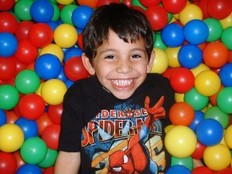
Perseveration (pronounced: per•sev•er•a•tion) is the repetition of a particular response such as a word, phrase, ritual, or gesture (The American Heritage® Dictionary of the English Language, Fourth Edition). An example of this would be if a child fears the vacuum and continually asks if it is put away. Another example, which I see regularly is someone having a special interest with cars and/or trains, specifically with television/movies and/or the actual toy. Perhaps a child will ONLY play with his train set and when he plays with it he is uninterested in anything else, playing with it for hours on end.
Immediate echolalia is just that, immediate. For example, if I say “do you want to play with cars?” An immediate echolalic response would be, “do you want to play with cars?” Rather than answering the question, the child simply “echos” the question. Is is possible this response is due to lack of understanding, delayed processing, and/or an inability to formulate an appropriate response.
Delayed echolalia… yep you guessed it… is delayed repetition of a word or phrase. Many times this is evident in the repetition of television commercials, movie lines, and/or parental reprimands. A couple of common examples are reciting entire scenes from Cars (the movie) or blurting out “you better not” randomly and/or when the context doesn't match.
Perseveration and echolalia are common among children and adults with autism; however, many children and adults have these characteristics and are not autistic.
If you have concerns about perseveratory behaviors or echolalic speech, talk to your speech-language pathologist today.
- Amy Grant, M.S., CCC-SLP



 RSS Feed
RSS Feed
